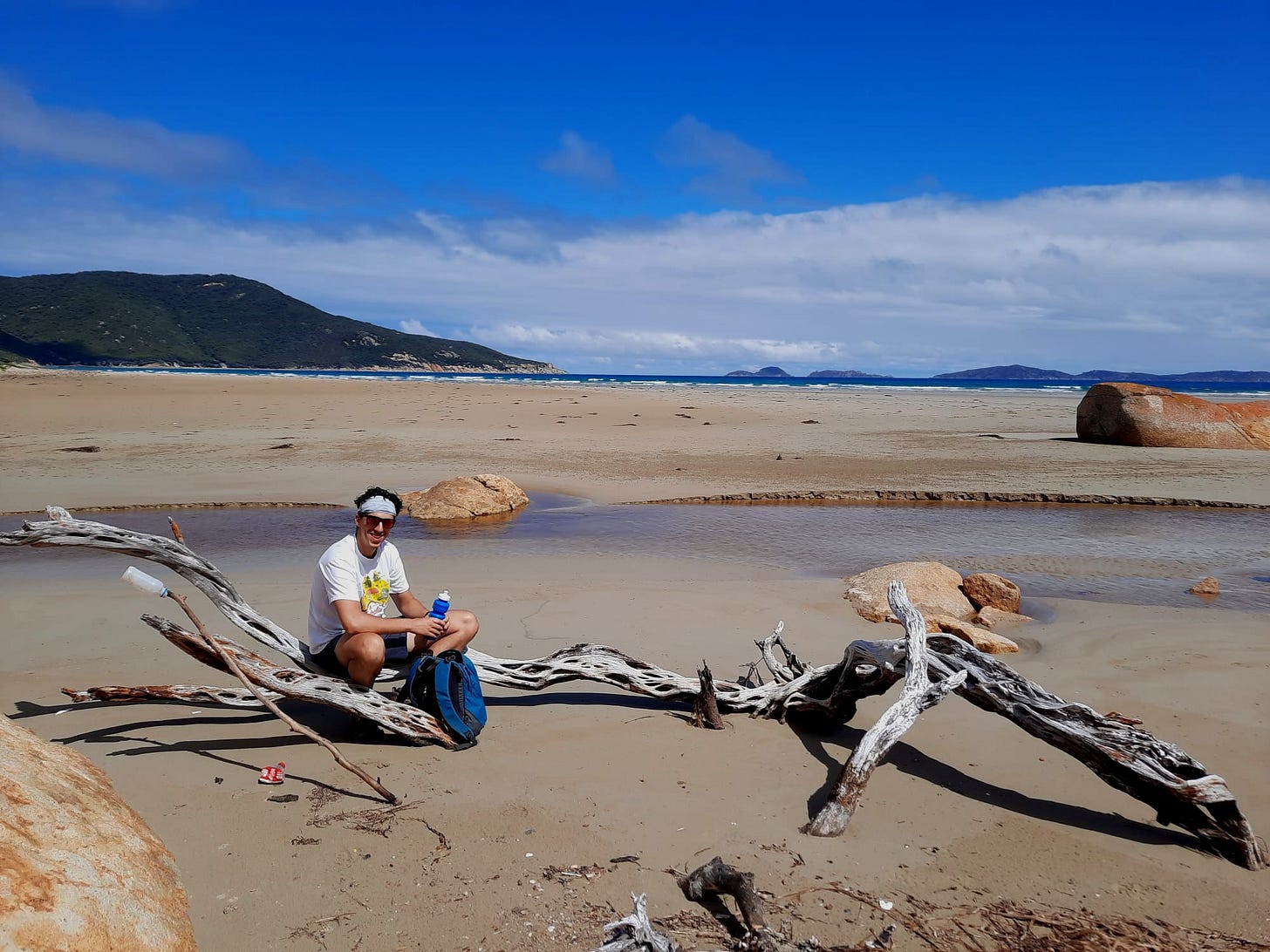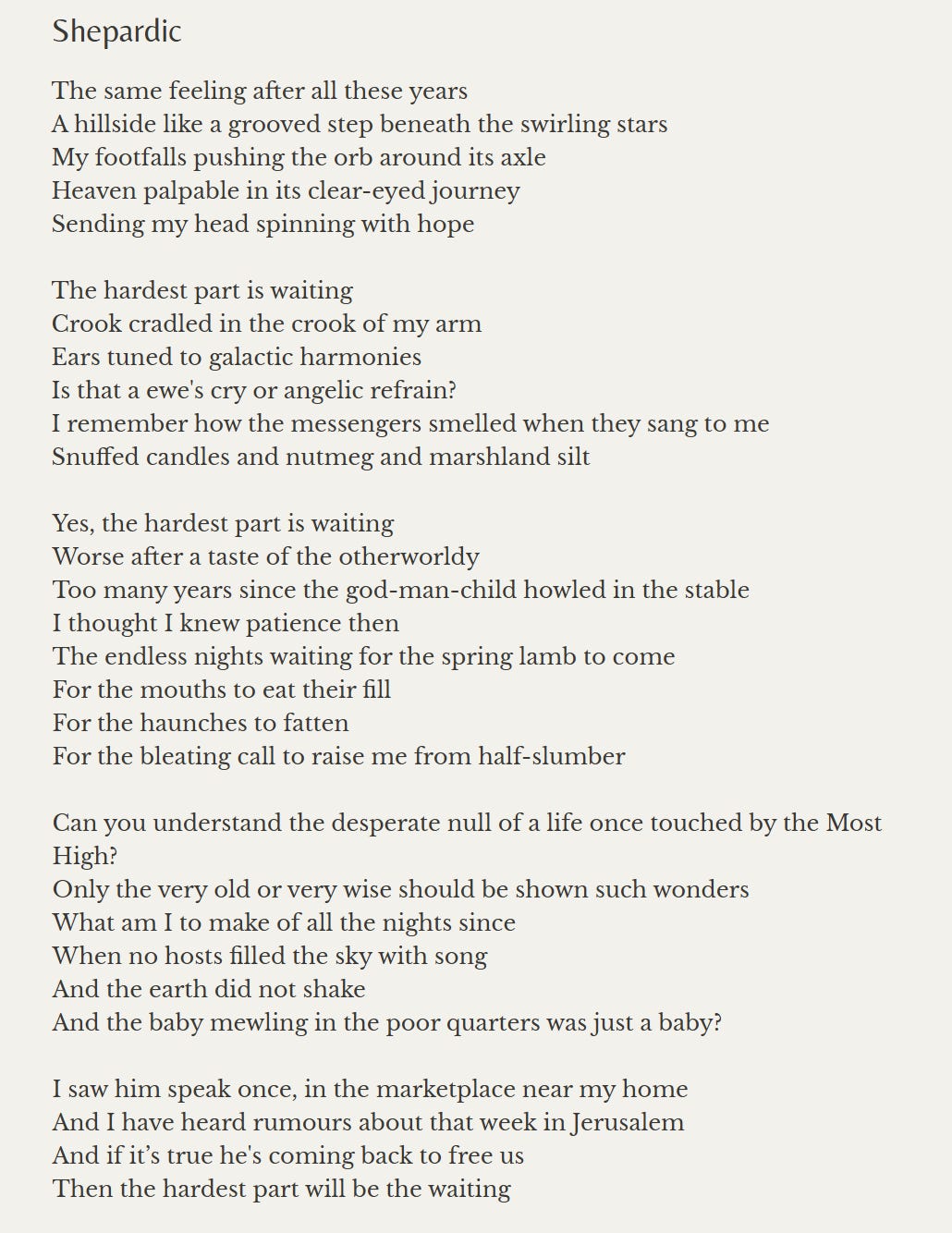Hello, fellow wayfarers.
First of all, many thanks to the 270+ of you who have subscribed to Waymarkers since I started this journal a few months ago. I appreciate your time reading what I send out, as well as your comments and feedback. My aim is to draw us all further up and further in, and also give you something to share with those who are seeking more.
This month, my wife and I are in Australia for my brother’s wedding, and just being back in Melbourne is a blessing. Spending time with family and friends after a year away is like finding our way back to a natural spring filled with cold, clean, refreshing water. As the dust and dirt is washed away, our eyes are drawn off ourselves and toward the faces of the people we love, and then upwards to the Father who is caring for us all.
There are a few essays, stories and poems still sitting in my drafts to be published here on Waymarkers over the next few months, plus other writing in my notebook waiting to be typed up. But for this month, I wanted to share some waymarkers which I’ve constructed elsewhere for people to find and follow…
‘The King and I’, published in After Dinner Conversation (February 2025)
After Dinner Conversation is a philsophy and ethics magazine, publishing short stories dealing with ethical and moral dilemmas.
Despite the title, this story is not about an English governness and the King of Siam singing and dancing and falling in love. Instead it’s a story set within a dream involving mercenaries and hermit kingdoms and a difficult choice between the life of your child or the freedom of your people (hint: the answer to this moral quandry is inspired by a certain Gallilean preacher).
You can buy the entire February 2025 issue here, but I’ve extracted my story below for you:
‘Shepardic’, published in The Clayjar Review’s Issue #10: A Thrill of Hope
The Clayjar Review is an online literary journal dedicated to publishing life-giving poems centered on spiritual themes.
‘Shepardic’ was the final poem of Issue #10: ‘A Thrill of Hope’, which I thought was appropriate given it’s about endings and the wait for new beginnings. It’s written from the point of view of a shepherd who visited the newborn Jesus of Nazareth, but told from a vantage point many years later.
You can access the entire issue here, but I’ve extracted my poem for you below:
‘The Saxophonist’, published in The Rialto Books Review, Volume 26
The Rialto Books Review is a quarterly literary journal run by Song of the Broad-Axe Publications (which can be found on Substack at The Ha’penny Papers).
This short story is about the value of forgiveness and grace in an age of debilitating loneliness. If you like live music and explorations of masculine vulnerability, then I think you’ll like this.
You can buy the entire issue here, but I’ve extracted my story below for you:
‘Distant Corners’, published in LOST Magazine, 12 February 2025
LOST Magazine is an online and print journal about ‘self-discovery through travel’. This is a bit of a different one for me, as it’s mostly a pure travel piece about our journey to Khonoma, the eco-village of Nagaland. Plus it features lots of photos of this beautiful and unique Naga village.
You can read the full article and see all the photos here: https://lostmagazine.org/distant-corners/
‘The Donut Theory of Poetry’, a craft article for The Clayjar Review on Substack
The Clayjar Review is also active on Substack and they have started publishing ‘craft articles’ on the intersection of writing practice and faith. My article draws on Riffaterre’s theory of poetic language and how it differs from prose by purposefully misdirecting and alluding to the subject of the poem, much like a donut built around an empty hole. This is ‘poetry as Inception’ — a subtler way of planting ideas and images in the reader's mind, by taking an indirect route.
As for how this relates to faith and spirituality, I’ll quote from the article itself:
It is poetry's indirection that allows it to operate in a separate dimension compared with other forms of writing. And this is something the writers of Psalms, Proverbs, Job, Ecclesiastes, Song of Songs and Lamentations understood well. If God is Spirit and is therefore unseeable and unfathomable, trying to define God in literal terms is nearly impossible. The work of the poet, as opposed to the theologian, is to revel in the mystery of God and find ways to point to Him with the imperfect tools of human experience and language.
The article is now behind a paywall, but I’ve extracted the text for you:
I hope you glean something edifying from the above pieces, and I look forward to hearing your thoughts, comments, feedback or questions. I’m also looking forward to publishing more fiction, poetry, and non-fiction for you to read this year.










